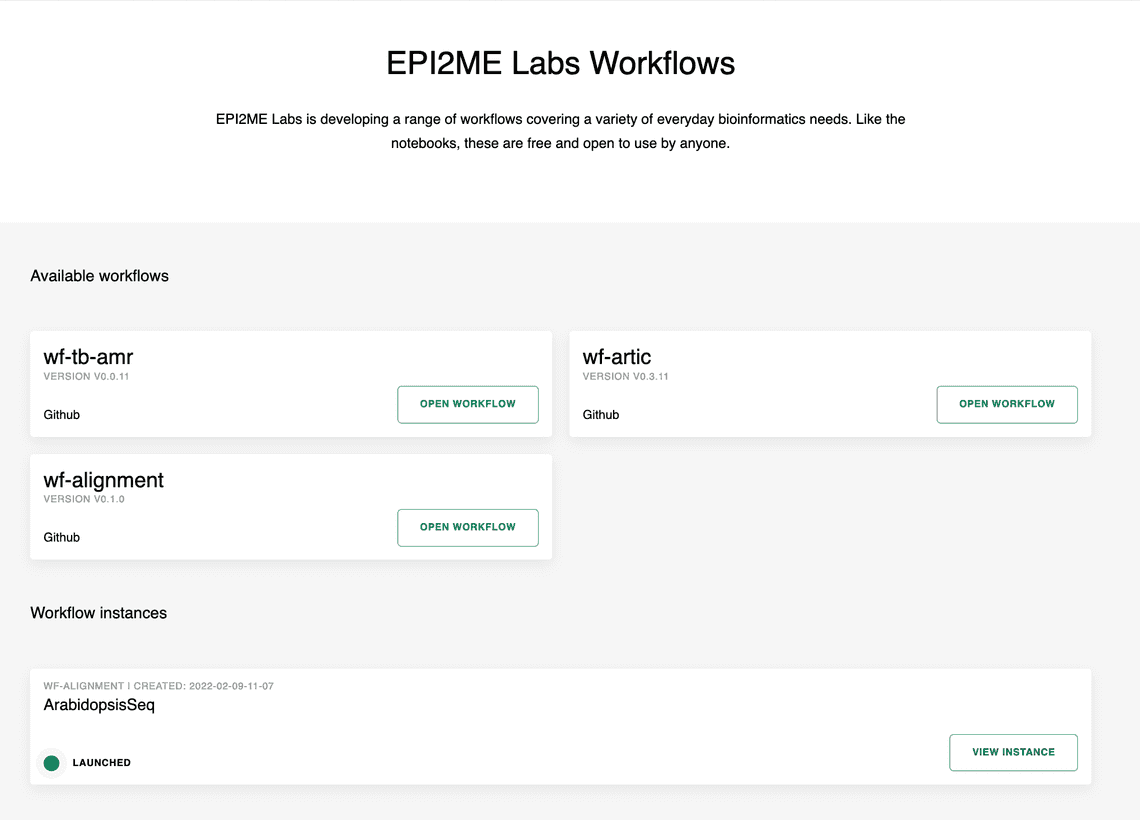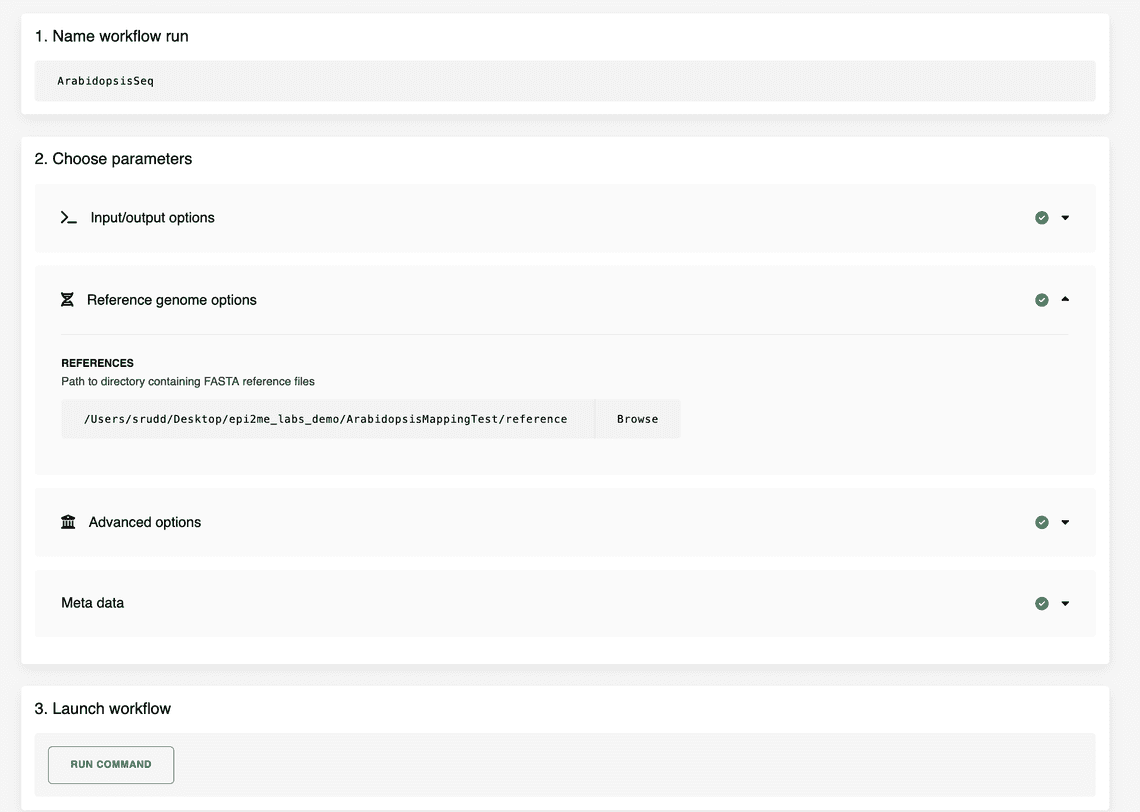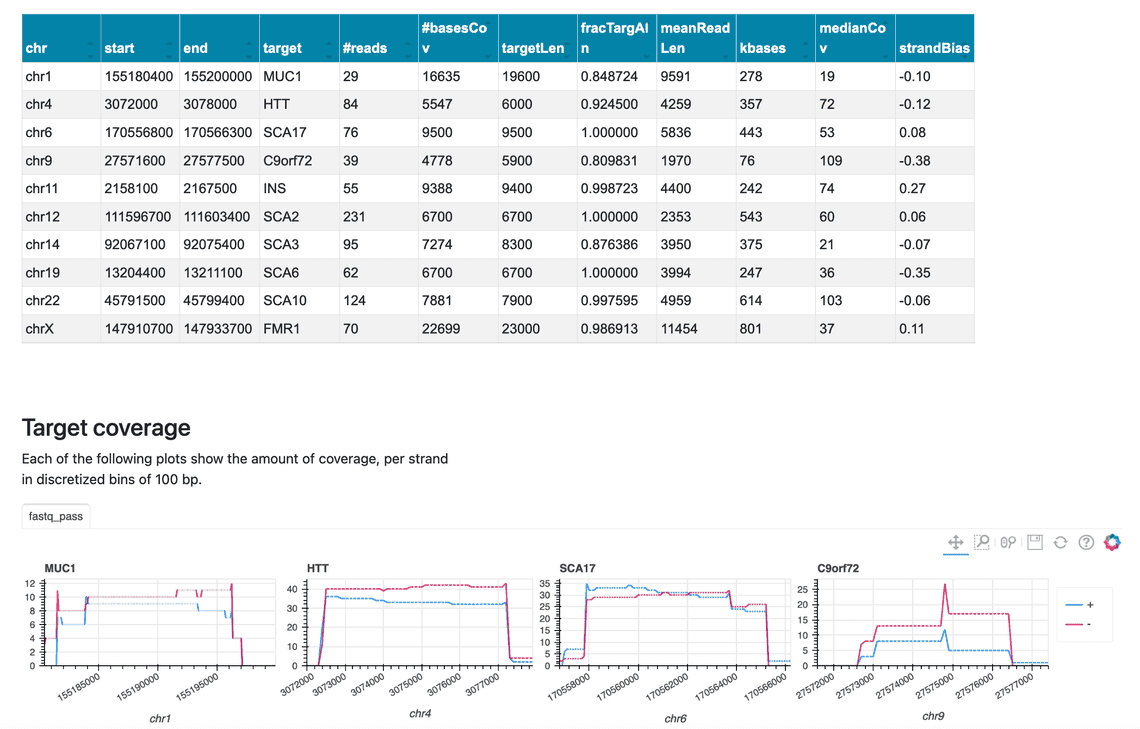EPI2ME Labs 22.02.01 Release
Dear Nanopore Community,
We are pleased to introduce an update to our EPI2ME Labs product that now includes the functionality to launch our Nextflow pipelines directly from the EPI2ME Labs session. These new capabilities have been implemented to facilitate the launching of integrated workflows in an efficient manner whilst avoiding the requirement for using a terminal session.
Updated EPI2ME Labs interface
EPI2ME Labs has been updated to provide access to both tutorials and workflows through the JupyterLab interface. The inclusion of workflows within EPI2ME Labs (Figure 1) now facilitates the launch and execution of our Nextflow workflows through a graphical user interface (Figure 2) - using the command line interface is no longer mandatory.


The tutorials provided in EPI2ME Labs are not recommended for the routine or production analyses of sequence data; for the analysis of sequence data we recommend our workflows that are intended to be more scalable and portable between computer systems and servers.
This first beta release is available for both macOS and Ubuntu Linux. The product will be updated to implement functionality on computers running Windows over the coming weeks. More details are available in our EPI2ME Labs Nextflow post.
Nextflow workflow for assessment of non-target Cas9 depletion experiments
We have released wf-cas9, a Nextflow workflow aimed to assist in the assessment of non-target depletion from a Cas9 targeted sequencing experiment. The workflow is based on our Cas9 Targeted Sequencing Tutorial but is intended for more routine and expedited analyses. The logic within the analysis is unchanged but the pyranges software has been deprecated in favour of bedtools. The workflow is available through its GitHub page and an example report is available from the EPI2ME Labs Workflows page. The wf-cas9 software is supported through our EPI2ME Labs product.

Nextflow workflow for assessment of tuberculosis antibiotic resistance
EPI2ME Labs now provides a workflow, wf-tb-amr, that may be used for the assessment of antibiotic resistance from Mycobacterium tuberculosis amplicon sequencing data. The workflow looks for genetic variants associated with antibiotic resistance from sequence reads that have been mapped to the reference tuberculosis reference genome. More information on the workflow may be found from its GitHub page.
SARS-CoV-2 analysis pipeline, wf-artic, updated to version v0.3.11
wf-artic, our Nextflow workflow for the analysis of SARS-CoV-2 sequence data has been updated to version v0.3.11. This update includes a correction to the NEB VarSkip V2 bed coordinates and database updates to both the Pangolin and NextClade components. Please see the wf-artic changelog for further details.
EPI2ME Labs maintenance
The EPI2ME Labs Launcher has been updated to fix an issue where system usernames containing non-ASCII characters led to a failure to start the epi2melabs-notebook container.
Please note that we will no longer provide Centos 8 RPM builds for the LabsLauncher software. Centos 8 has reached end of life; as such it is no longer maintained by its authors with no further feature or security updates. Furthermore, package repositories have started to remove packages with security issues meaning that other dependent packages will no longer function. It is therefore no longer possible for us to maintain a secure and reliable CentOS 8 LabsLauncher package.
Aplanat is the Python library that we use for preparing the tabular and graphical data within our workflow and tutorial HTML reports. Aplanat has been updated to version v0.6.1 and includes a variety of updates that accommodate the presentation of tabbed-tabular data. Please see the aplanat changelog for further details.
We look forwards to any feedback and comments and would welcome insight as to workflows and tutorials that you would like to see in the future.

